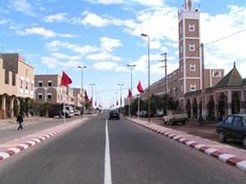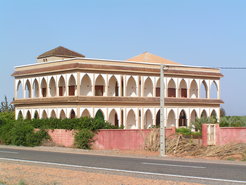Property Relations, Relational Property, Mobility, and Migration

Protection of property and ownership is inscribed in legislations and jurisdictions across the globe as a central matter of concern to such an extent that all other legal regulation seems to be shaped around and in accommodation of property law. In tandem with contract law, property law constitutes the foundation of the capitalist legal world order. However, while property regulations continue to be the legal backbone meant to ensure certainty and predictability in human interaction, they are constantly undergoing transformations. Through these changes, the legal protection of some forms of property seems to remain incontestable; however, in other cases, various ‘legal models’ challenging the protection of certain other forms of property are emerging. These models may even allow for the expropriation of property or the disenfranchisement or disentitlement of property holders, leading to all sorts of ‘grabbing’. Degrees of legal efficiency seem to translate into power differentials here.
This implies an untying of the bundle of rights and obligations that determines property relations. Increasingly, responsibility that was formerly attached to property and its use is now being separated from an emergent acquirer of property and delegated back to those who have been deprived of their property. While property remains a legal stronghold in the hands of the powerful, new, emerging forms of property lead to an increasing fluidity of property regimes that may also affect more classic manifestations of property. In this context the very properties of property are in flux, as are the features of other parameters that inform property relations, such as space, time, scale, distance, etc.
This long-term project considers some of these changing property relations in the context of the experiences of migrants and other mobile people that result from the transfer of property across jurisdictions. Mobile people must cope with a multiplicity of different and sometimes incompatible ideas and notions of property and the ways it may be regulated. Property regimes both separate and tie people together across spaces, temporalities, and legislations. Individuals may find themselves on both sides: maintaining strong ties of belonging to their country of origin while at the same time cultivating a lifestyle of global citizenship in the host country.
The project draws on empirical research in Morocco, Canada, and the European Union to highlight relational aspects of property research – namely, the analysis of the normative and social impact of migration on both countries of origin and host countries, as well as the impact of transnational property law on local settings and the ensuing transformation of property regimes.
International migration is transforming the dynamics of property management in manifold ways. It is a key channel for population movements (the longing for material security as a key driver of mobility), financial remittances, and knowledge transfers from and to the Global South today. It affects the relationality of social actors, material, matter, technologies, inventories of knowledge, legal regulations, etc. that together make up fluid assemblages of property.
Migration and mobility thus inform an individual’s worldview and affect the ways people see themselves in relation to resources and what kinds of objects they consider valuable. For example, migrants might cease to value land as a resource for their own productive activities, but instead increasingly attribute symbolic significance to the land as a place of belonging. Furthermore, migration affects the possibilities available to social actors to influence control over resources, whether it is through participation in a local council, access to courts, or recourse to transnational legal norms. Property that is jointly held by both people who stayed and people who moved away may be disputed, as some understand it as retained accumulation and others as a means of investment. Experiments are also being made with translocal co-ownership models, leading to intense renegotiations of what components make up property assemblages, with widely varying outcomes. Moreover, strategies of hiding or, conversely, putting assets on display, which reflect quite different onto-legal understandings of property, become subject to re-evaluation. In the case of the former, such normative practices may be informed by egalitarian thinking that encourages hiding wealth imbalances in small communities; in the case of the latter, they may be motivated by a desire to signify distinction by displaying property publicly and celebrating migration success in the country of origin while anonymizing wealth in the host country.
Mobility – that is, being in a place or not being there – affects whether claims to property can be made, removing some migrants from the pool of potential claimants and endowing others with new financial and discursive prowess. According to many non-state, but widespread registers regulating property, physical presence and contact with the property item may be a precondition for legitimately exercising property rights. The emergence of new property claims based in indigenous conceptions of the coproduction of property and personhood, access, usufruct, and the rights of nature may clash here with a neoliberal understanding of the propertization of everything. More fluid forms of property that are located outside the classic division into movable and immovable property seem more compatible with the lifeworlds of mobility.
Emerging routines in translocal interaction are of particular significance in this context: migrant politics of investment in local resource exploitation; migrant–local (non-migrant) joint entrepreneurship that links places of origin with places of diaspora; knowledge transfer between the homeland and the diaspora; migrants, returnees, and retired people as providers of knowledge, technologies, and materials for their regions of origin and reinvention of tradition among expatriates; competitive migrant investment in local signature projects such as the construction of religious sites; and the impact of migrant NGOs for rural development. Migrants may discover or experience their region of origin as a resource available for neoliberal extraction, as a place of promising development cooperation, or as an exotic attraction where people have restricted access to justice. Such attitudes, in turn, may interact with local rural values, morality, and religious convictions about property, economy, and justice. Taken together, such criteria may favour the transformation of property from one form into another in translocal cooperation.

The central question is how international migration translocalizes and transforms dynamics of property management and the very notion of property, ranging from classic topics such as the inheritance of land to controversial understandings of intellectual property rights and the classification of new emerging types of property and objects of propertization. The particular focus of this research is the dialogue between Moroccan migrants in Canada and the European Union and people living in Morocco. Property is addressed as a boundary object (Wiber 2015) allowing members of the different communities to communicate while the legal worlds that they associate with property differ. How do migrants influence negotiations over rights to land and other resources and valuable goods in their places of origin, and how do consequent changes in property dynamics modify property dealings in and beyond migrants’ villages of origin and diaspora communities? What do human mobility and migration do to the ways people think of and understand property?
Reference: Wiber M.G. 2015 ‘Property as Boundary Object: Normative Versus Analytical Meanings’, The Journal of Legal Pluralism and Unofficial Law 47,3: 438–55.
Publications
Bertram Turner 2021 ‘Legal Pluralism in Infrastructural Designs: Alternative Supply Chains in the Moroccan Argan Oil Export’, Science, Technology, & Human Values DOI: 10.1177/01622439211042666 (1-25).
Bertram Turner 2017 ‘The anthropology of property’, in: Graziadei, Michele and Lionel Smith (eds.) Comparative Property Law: Global Perspectives. Cheltenham: Edward Elgar, 26-47.
Bertram Turner 2014 ‘Neoliberal Politics of Resource Extraction: Moroccan Argan Oil’, Forum for Development Studies 41,2: 207-232.
Bertram Turner 2009 ‘Intervention transnationale et moralisation de la gestion de la propriété en milieu rural au Maroc’, Anthropologica. Journal of the Canadian Anthropology Society 51,1: 81-93.

